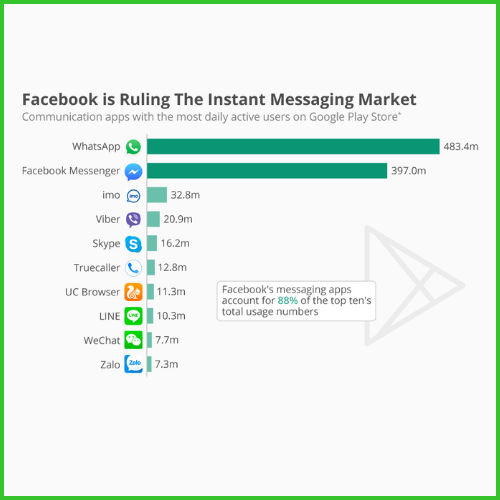Blog
- Home
- Blog

WhatsApp operates on a freemium business model, where it offers its basic messaging service for free, and charges users a subscription fee for additional features such as voice and video calls. However, in many countries, including India and Brazil, WhatsApp is completely free to use. WhatsApp's revenue comes from the fees charged to businesses for using its Business API, which allows businesses to communicate with their customers through the WhatsApp platform.

WhatsApp is known for its simplicity, ease of use, and privacy features. The application uses end-to-end encryption, which means that messages are only visible to the sender and receiver, and not even WhatsApp can access them. This has made WhatsApp a popular choice for users who value privacy and security. Additionally, WhatsApp's messaging features are designed to work seamlessly across different platforms, including iOS, Android, and desktop computers.

WhatsApp's growth strategy has been largely based on word-of-mouth marketing. The application has gained popularity through viral adoption, with users sharing the app with their friends and family. Additionally, WhatsApp has focused on international expansion, targeting countries where there is a high demand for messaging applications. WhatsApp has also collaborated with telecom companies to offer free or discounted access to its service in developing countries.

Despite its popularity, WhatsApp has faced several challenges and controversies over the years. One of the most significant challenges has been dealing with misinformation and fake news on its platform. WhatsApp has taken steps to combat this issue by limiting message forwarding and introducing fact-checking features. WhatsApp has also faced criticism for its data sharing practices with Facebook, with many users concerned about their privacy.
In conclusion, WhatsApp's success can be attributed to its simplicity, ease of use, and privacy features. The application has become a popular choice for users who value security and privacy, and its freemium business model has allowed it to gain a large user base while generating revenue through its Business API. However, WhatsApp has also faced challenges in dealing with misinformation and privacy concerns, and will need to continue innovating to maintain its position as a leading messaging application.
 Watch This
Video
Watch This
Video 